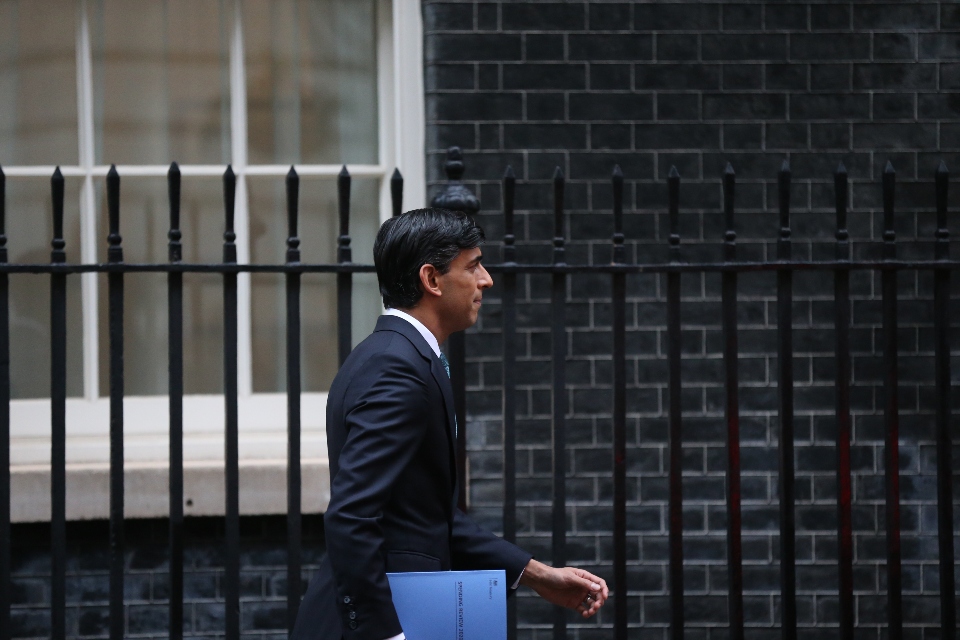Could Ukraine Crisis Force National Insurance U-Turn?
 “Events, dear boy, events.” This famous quote is often attributed to former prime minister Harold Macmillan after being asked what could knock his government off course.
“Events, dear boy, events.” This famous quote is often attributed to former prime minister Harold Macmillan after being asked what could knock his government off course.
This could be a timely quote right now, as the horrific events in Ukraine look set to impact on consumers and businesses across the world.
The UK government will have hoped that the recent dropping of coronavirus restrictions would have kickstarted a period of strong consumer confidence and economic growth.
But rising food and energy prices have made its efforts to pay back the bill it racked up throughout the pandemic, such as a planned increase in National Insurance, hugely controversial.
Despite vocal objections, Prime Minister Boris Johnson and Chancellor of the Exchequer Rishi Sunak recently joined forces and insisted the National Insurance hike would go ahead.
However, Russia’s invasion of Ukraine is pushing up global energy prices even further, and the use of sanctions by the West means there are questions over the stability of Russian gas supplies in Europe.
That’s led to fears from some analysts that inflation could exceed eight per cent in the next couple of months, which could be devastating for both businesses and households who are already struggling in the face of ever-increasing costs.
As a result, Rishi Sunak is facing renewed calls to scrap his planned National Insurance increase.
Manufacturing trade body Make UK, for example, has urged the chancellor to postpone the tax increase until the UK is on a stronger economic footing, after a survey found that nearly three-quarters of manufacturing businesses would pass on, or be likely to pass on, the increase in their costs following the tax hike to their customers.
Meanwhile, the study showed that three-fifths of those polled believe the National Insurance increase could affect their hiring intentions.
Stephen Phipson, chief executive of Make UK, said: “The proposed increase remains illogical and will be even more ill-timed given how circumstances have rapidly changed since it was announced. The cost burden on business is continuing to escalate and, while some of these increases are due to global events, government must avoid shooting business in the foot by an entirely self-imposed decision.”
The government has already acknowledged that the consequences of the Ukraine invasion will lead to higher prices for consumers and businesses in the UK.
Foreign secretary Liz Truss, for example, told Sky News: “There will be an economic cost here in Britain. There will be a cost in terms of access to oil and gas markets.”
However, ministers have not been forthcoming about whether ongoing events in Ukraine will knock its domestic policy off course.
One thing that is clear though is that the voices that called for the National Insurance hike to be delayed or scrapped are likely to get much louder over the coming days and weeks, particularly as Rishi Sunak is gearing up to deliver his Spring Budget later this month.
Mr Sunak’s political opponents might also remind him that the Conservative Party had pledged not to increase National Insurance in its 2019 election manifesto.
The government’s argument has been that the coronavirus pandemic and the costs that came with it couldn’t have been foreseen at the time of the last election.
But many will argue that the same could be said about the Russian invasion of Ukraine, and that ministers need to be flexible in the face of an extreme situation, especially when so many homes and livelihoods are at stake.
Will Mr Sunak back down in the face of strong opposition or stick to the path he’s already laid out? We will have to wait and see.
If you have any questions on your personal finances, don’t hesitate to get in touch. You can contact me directly on 01789 263888 or via email at michael.harvey@charterswealth.co.uk.

